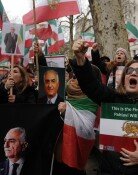[Opinion] Korean Labor Movement Goes Global
[Opinion] Korean Labor Movement Goes Global
Posted February. 12, 2008 03:02,
The slogan Proletariats of the whole world, unite! became famous after concluding the book by Karl Marx and Friedrich Engels The Communist Manifesto in 1848. This saying, however, was first used in 1843 by French socialist and feminist Flora Tristan, the grandmother of painter Paul Gauguin.
As old as the slogan is, world labor organizations still like to use it. On the occasion of the 117th anniversary of World Labor Day on May 1 last year, the Korean Confederation of Trade Unions adopted a similar slogan, Proletariats of the whole world, unite and struggle!
Confederation chairman Lee Suk-haeng left for Washington yesterday to urge U.S. unions and congressmen to block the ratification of the bilateral free trade deal and discuss countermeasures.
The union of Korean apparel maker E-Land Group is demanding protection for its temporary workers and withdrawal of disciplinary action against those taking part in labor protests. The union is planning rallies in Hong Kong and China next month against E-Lands overseas operations.
Though the two gripes of the union differ slightly in nature, the Korean labor movement seems to have gone international.
Korea generated great publicity across the world with its fierce labor and farmers movements in Cancun, Mexico, in September 2003 and during the World Trade Organization ministerial meeting in Hong Kong in December 2005.
In June 2006, when Korea and the United States began free trade negotiations, Korean labor activists went over to Washington to stage protests against the agreement. Given the high expenses required for their overseas activity, Korean unions are apparently not as poor as they say.
American unions representing different industries have varying opinions on the accord, as do congressmen depending on whether they are from a manufacturing-based or agricultural-based state. U.S. politicians and unions work in the interests of their constituencies and union members.
Today, conditions for workers are not uniform. Certain laborers enjoy an annual salary of more than 100 million won while temporary workers face job insecurity and lower incomes.
Thus, it is unrealistic for the labor confederation to press congressmen and U.S. union representatives to block the free trade agreement based on the concept of proletariats of the world.
Editorial writer Gwon Sun-taek, maypole@donga.com







